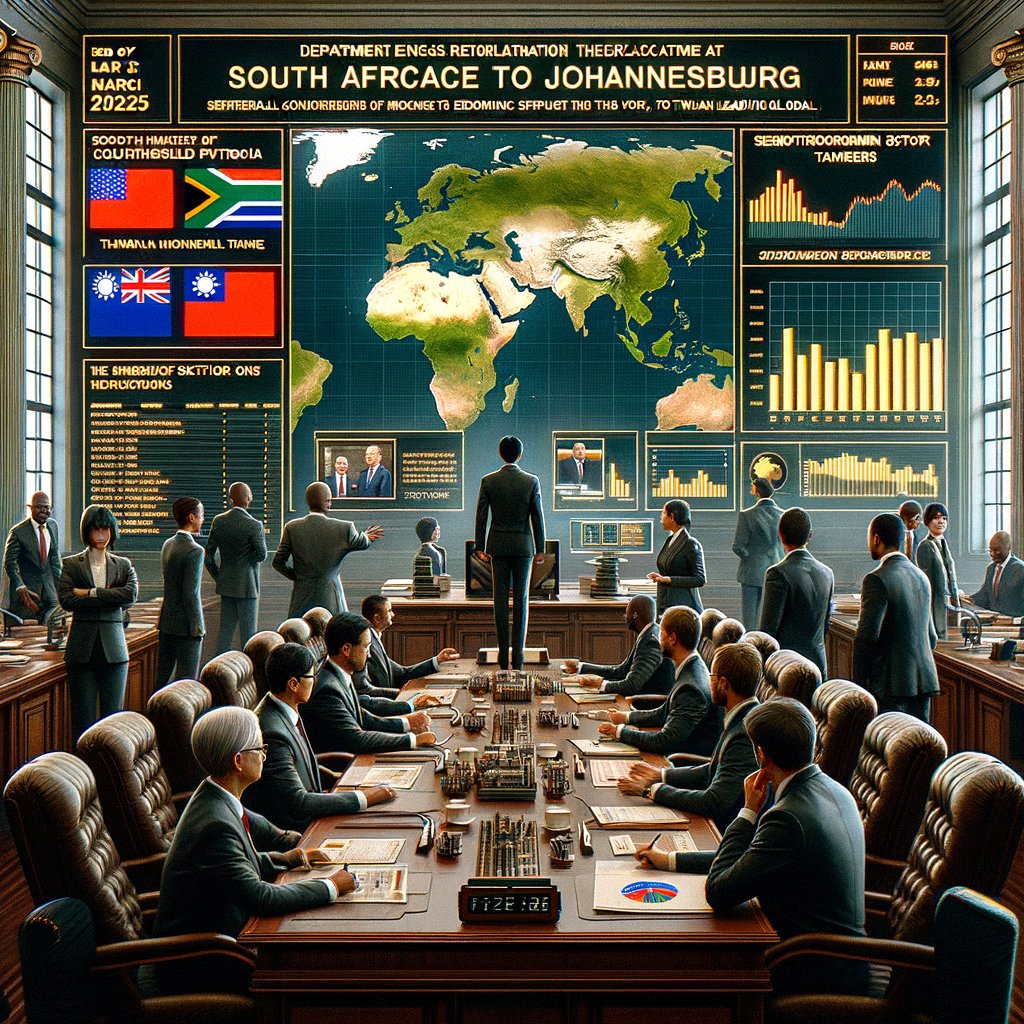Image created by AI
South Africa's Directive to Taiwan's Pretoria Office: A Diplomatic Misstep?
In an unexpected shift in diplomatic relations, South Africa’s Department of International Relations and Cooperation (Dirco) has directed the government of Taiwan to relocate its Taipei Liaison Office from Pretoria to Johannesburg by the end of March 2025. This mandate not only alters the location but also mandates a name change, signaling a significant shift in South Africa’s foreign policy stance, potentially aimed at placating Beijing.
This development surfaces amidst increasing geopolitical tensions, particularly concerning China's assertive reunification ambitions towards Taiwan. Since the end of the Chinese Civil War in 1949, Taiwan has maintained a unique international position, recognized by only a dozen countries due to the People’s Republic of China's (PRC) stringent "One China" policy upheld since its acceptance into the UN in 1971.
South Africa, which switched recognition from Taiwan to the PRC in 1998, has maintained a low-profile but cooperative relationship with Taiwan through the Taipei Liaison Office under arrangements that included diplomatic privileges. The proposed relocation and renaming of the office challenges this longstanding arrangement, raising questions about its implications on South Africa’s international commitments and its domestic economic interests.
China, now South Africa’s largest trading partner with bilateral trade nearing $50-billion, exerts substantial economic influence. However, this move could potentially compromise the significant Taiwanese economic presence in South Africa. Approximately 450 Taiwanese-owned factories operate across the nation, employing around 40,000 people and primarily benefiting local economies, particularly in smaller towns.
Moreover, Taiwan’s global economic footprint, especially in critical sectors like semiconductor manufacturing, positions it as a valuable partner for South African technological and industrial growth. Taiwan leads globally in the production of advanced semiconductors, a critical component in modern tech industries. Distancing from Taiwan could hinder South Africa’s access to leading-edge technologies and investments in sectors crucial for the country’s economic modernization.
The potential relocation also comes at an intricate time in global geopolitics, shortly after the US President Donald Trump’s inauguration, signaling possible further complications in South Africa's relations with Western nations, notably concerning China's global strategic posture. Strains in these relationships might affect not only diplomatic interactions but also economic sanctions or trade negotiations.
Domestically, this diplomatic move could stir political and social debates regarding national values and foreign policy direction. South Africa’s constitution champions democratic values and human rights, areas in which China has drawn international criticism. This shift could be viewed as aligning with a one-party state at odds with the very constitutional principles South Africa stands for, thereby impacting public perception and internal policy coherence.
In conclusion, while attempting to realign with Beijing might seem economically attractive for South Africa, it must balance such decisions against potential losses in trade benefits with Taiwan, compromises in international relations, especially with Western allies, and internal socio-political repercussions. The diplomatic, economic, and ethical dimensions of this decision warrant a thorough and transparent reassessment to ensure that South Africa’s actions on the international stage reflect its constitutional commitments and long-term strategic interests.










